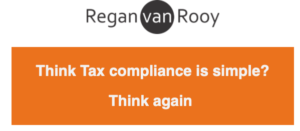Article by: Dr Daniel N Erasmus (Pieterse TRM Erasmus Tax Attorneys)
SARS is circulating a section 46 of the Tax Administration Act, 2011 request for relevant material to many multinationals requesting information about their intra-group services.The fact that this is taking place on a widespread basis calls into question whethre or not SARS are complying with the essence of s46 of the Tax Administration Act, 2011.Here is an example of the letter:
Our answer to this letter requires careful analysis of the following provisions of the of the Tax Administration Act, 2011:
After reading the relevant provisions, the following analysis in the PhD thesis of Dr Daniel N Erasmus is appropriate to assist determining whether or not the ‘conduct’ by SARS is Constitutional in terms of s33 and s195 of the Constitution, giving rise to a potential ‘just cause’ defence in not providing any such requested information in the absence of clear reasons why this is required. Is it any kind of audit, where your rights in terms of sections 40 to 44 of the of the Tax Administration Act, 2011 come into play. Is it a statistical analysis? How do you know being compelled to give the information your fundamental rights are not being transgressed?
Please consider the following thesis extracts (AN ANALYSIS OF CHALLENGING THE COMMISSIONER’S DISCRETIONARY POWERS INVOKED IN TERMS OF SECTIONS 74A AND 74B OF THE INCOME TAX ACT 58 OF 1962, IN LIGHT OF THE CONSTITUTION OF THE REPUBLIC OF SOUTH AFRICA 108 OF 1996), which look at the of the Tax Administration Act, 2011 provisions. The section on a ‘just cause’ defence analyses the previous legislation, but the principles are equally applicable to the of the Tax Administration Act, 2011 provisions.
It looking at the tax risk exposure, attention must be paid to section 44:
Conduct of criminal investigation44. (1) During a criminal investigation, SARS must apply the information gathering powers in terms of this Chapter with due recognition of the taxpayer’s constitutional rights as a suspect in a criminal investigation.(2) In the event that a decision is taken to pursue the criminal investigation of a serious tax offence, SARS may make use of relevant material obtained prior to the referral referred to in section 43.(3) Relevant information obtained during a criminal investigation may be used for purposes of audit as well as in subsequent civil and criminal proceedings.Regards,
If you are faced with addressing such a letter our specialist tax risk management legal team at Pieterse TRM Erasmus can assist you in formulating the appropriate response, to ensure your rights are maintained without antagonizing SARS.
Contact Dr Daniel N Erasmus at: http://www.trmlaw.co.za/
Dr Daniel N Erasmus is currently arguing an intra-group related tax case in Zimbabwe for a large conglomerate there. The practical experience he and the team at Pieterse TRM Erasmus have gained in defending taxpayers in intraday-group disputes is invaluable to corporate taxpayers.



